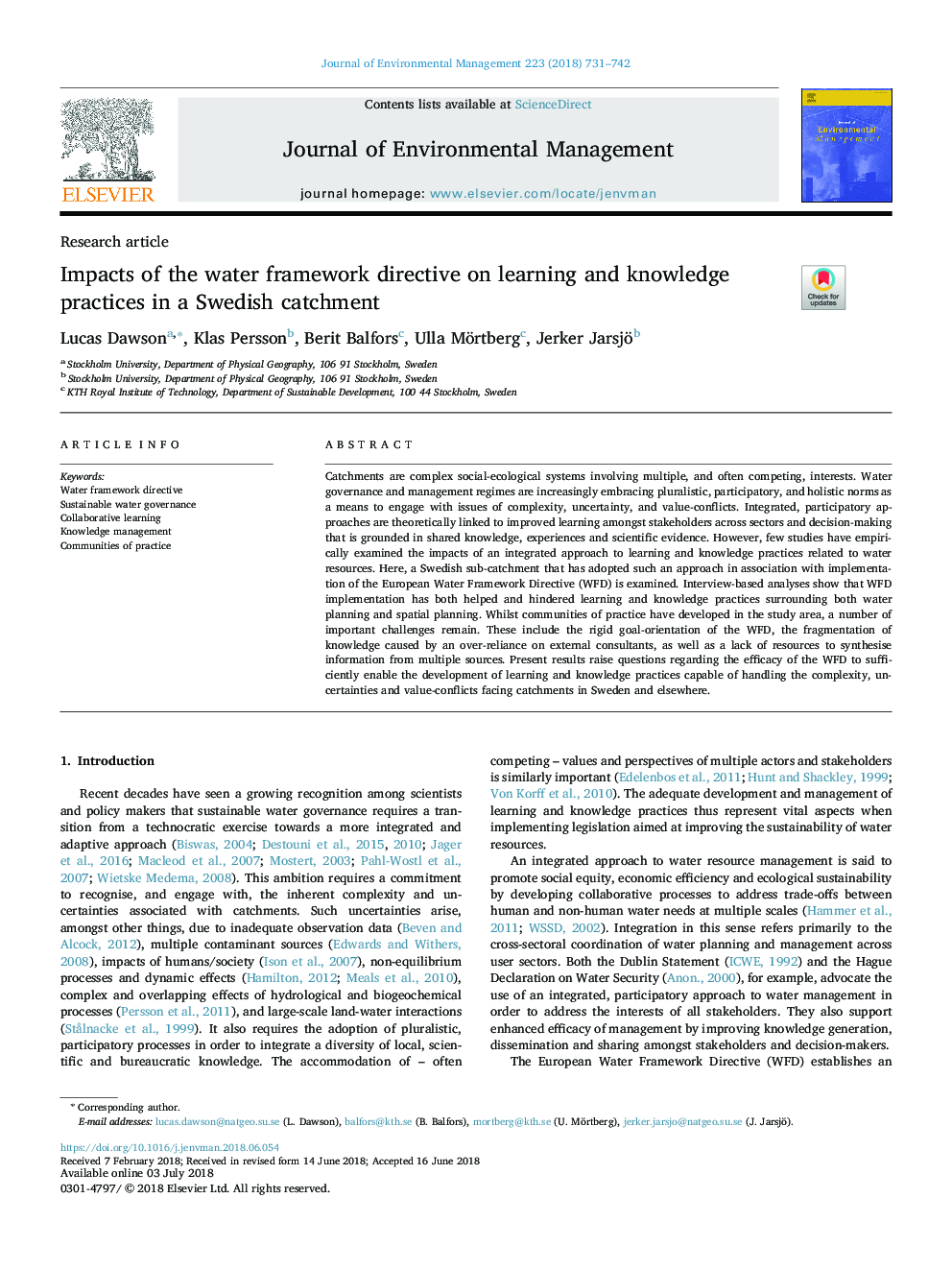| Article ID | Journal | Published Year | Pages | File Type |
|---|---|---|---|---|
| 7476152 | Journal of Environmental Management | 2018 | 12 Pages |
Abstract
Catchments are complex social-ecological systems involving multiple, and often competing, interests. Water governance and management regimes are increasingly embracing pluralistic, participatory, and holistic norms as a means to engage with issues of complexity, uncertainty, and value-conflicts. Integrated, participatory approaches are theoretically linked to improved learning amongst stakeholders across sectors and decision-making that is grounded in shared knowledge, experiences and scientific evidence. However, few studies have empirically examined the impacts of an integrated approach to learning and knowledge practices related to water resources. Here, a Swedish sub-catchment that has adopted such an approach in association with implementation of the European Water Framework Directive (WFD) is examined. Interview-based analyses show that WFD implementation has both helped and hindered learning and knowledge practices surrounding both water planning and spatial planning. Whilst communities of practice have developed in the study area, a number of important challenges remain. These include the rigid goal-orientation of the WFD, the fragmentation of knowledge caused by an over-reliance on external consultants, as well as a lack of resources to synthesise information from multiple sources. Present results raise questions regarding the efficacy of the WFD to sufficiently enable the development of learning and knowledge practices capable of handling the complexity, uncertainties and value-conflicts facing catchments in Sweden and elsewhere.
Related Topics
Physical Sciences and Engineering
Energy
Renewable Energy, Sustainability and the Environment
Authors
Lucas Dawson, Klas Persson, Berit Balfors, Ulla Mörtberg, Jerker Jarsjö,
